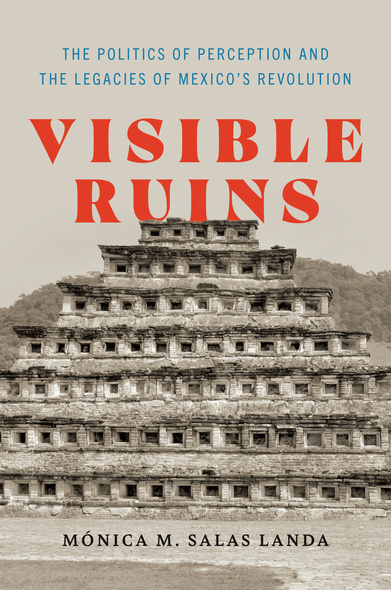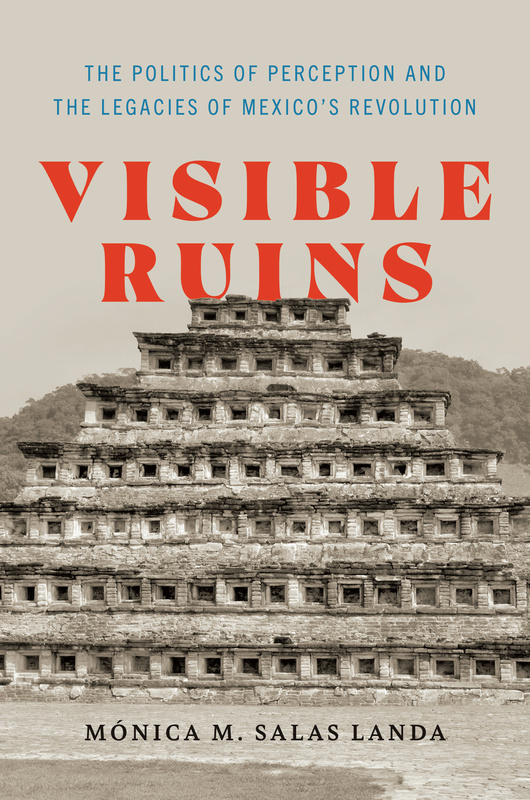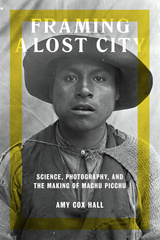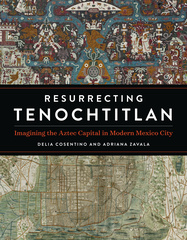Our shopping cart is currently down. To place an order, please contact our distributor, UTP Distribution, directly at utpbooks@utpress.utoronto.ca.
Visible Ruins
The Politics of Perception and the Legacies of Mexico's Revolution
An examination of the failures of the Mexican Revolution through the visual and material records.
The Mexican Revolution (1910–1920) introduced a series of state-led initiatives promising modernity, progress, national grandeur, and stability; state surveyors assessed land for agrarian reform, engineers used nationalized oil for industrialization, archaeologists reconstructed pre-Hispanic monuments for tourism, and anthropologists studied and photographed Indigenous populations to achieve their acculturation. Far from accomplishing their stated goals, however, these initiatives concealed violence, and permitted land invasions, forced displacement, environmental damage, loss of democratic freedom, and mass killings. Mónica M. Salas Landa uses the history of northern Veracruz to demonstrate how these state-led efforts reshaped the region's social and material landscapes, affecting what was and is visible. Relying on archival sources and ethnography, she uncovers a visual order of ongoing significance that was established through postrevolutionary projects and that perpetuates inequality based on imperceptibility.
This book is a fascinating and wide-ranging study of state projects in post-revolutionary Mexico. Salas Landa takes us to the lowlands of northern Veracruz to reveal how the Mexican government’s practices left behind legacies of violence against humans and the environment. Theoretically sophisticated, eloquent, and well-researched, her book is a model for conceptualizing the process of state-making both within Mexico and beyond.
Visible Ruins is an engaging and important contribution to the understanding of the visual orders of post-revolutionary Mexico. Through a rich montage that weaves together pre-Hispanic ruins, oil infrastructures, land regimes, environmental ruination, photographs, murals, and violence, Mónica Salas Landa demonstrates how political regimes are produced and challenged through practices of visibility and invisibility. She shows that the tension between what is made visible and what is concealed by an aesthetics of neoliberal-state governance creates landscapes regularly disrupted by that which cannot be fully hidden.
Mónica M. Salas Landa is an assistant professor of anthropology and sociology at Lafayette College.
- List of Illustrations
- Acknowledgments
- Introduction: Governing through Perception
- Chapter 1. Documents: The Aesthetics of Agrarian Reform
- Chapter 2. Infrastructures: The Aesthetics of Economic Nationalism
- Chapter 3. Pre-Hispanic Remains: The Aesthetics of Monumental Reconstruction
- Chapter 4. Photographs: The Aesthetics of Indigenismo
- Epilogue: Reconfiguring Dissent
- Notes
- Bibliography
- Index









